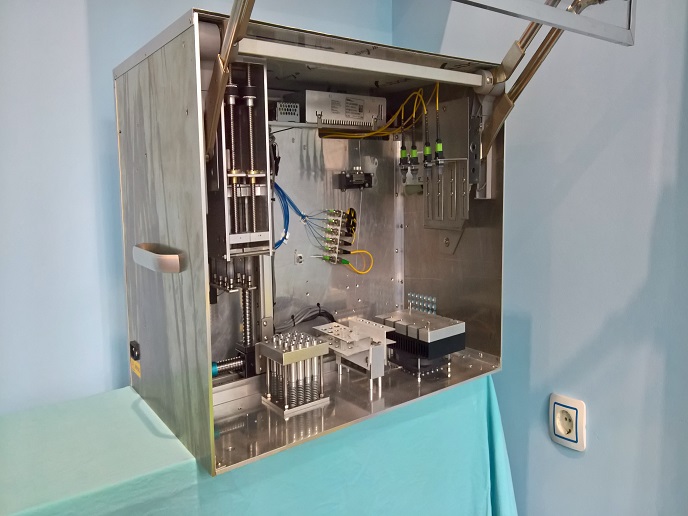In just minutes, mobile tool accurately detects viruses at pig farms
Effective drugs and vaccines are successfully fighting diseases in livestock. However, timely diagnosis and more reliable countermeasures against infectious disease outbreaks are essential to limit severe consequences. The increased burden of animal diseases threatens the subsistence of vulnerable populations and increases food prices, broadening inequalities. “Early detection is key to be able to intervene and save as many animals as possible,” comments Alessandro Giusti, R&D director at Cyprus Research & Innovation Center Ltd (CyRIC), the company coordinating the EU-funded SWINOSTICS project. “This will keep production costs low, resulting in better prices for consumers.”
On-the-spot, quick and reliable diagnosis
Currently, the time between a disease’s outbreak and the lab’s confirmation of the infection can run to several weeks. This underlines the urgent need for portable, accurate and user-friendly diagnostic units for direct testing at farms. SWINOSTICS’ mobile diagnostic system is based on biosensing and photonics technologies that reliably and quickly detect swine viral diseases in minutes. This on-site diagnostic innovation is crucial to preventing further disease spread at pig farms. The device is modular, allowing future upgrades to boost capacity. Moreover, it is compatible with sensors designed to detect any type of virus.
Immediate threat assessment on the farm
The SWINOSTICS tool detects six emerging and endemic viruses: the African swine fever virus, porcine reproductive and respiratory syndrome virus, porcine parvovirus, porcine circovirus type 2, classical swine fever virus and swine influenza virus. These all cause epidemics in swine farms throughout Europe. The device offers many benefits: in under 45 minutes, it provides results for 4 oral fluid samples at the same time, as well as for other types of samples such as blood, faeces and nasal swabs. Using oral fluid samples makes sample collection simpler and minimises the testing time. The quick turnaround time, together with the simultaneous analysis of samples, reduces costs and increases efficiency. Veterinarians or trained farmers connect to the project’s diagnostic tool using a mobile app. An advanced, cloud-based interface and platform are also available to process more detailed data. This is particularly useful for researchers, standardisation bodies and authorities.
Exploiting laser technology, chemistry and biology to better detect viruses
Photonic integrated circuit (PIC) biosensors are a key component of the device. The PIC’s surface contains antibodies against the targeted swine viruses. When a sample containing a virus is passed over the sensors, this virus binds to the antibodies. The device determines if the targeted virus is present or not. What is more, the biosensors can be reused at least 10 times, making them even more cost-effective. Both the device and sensors can easily be adapted to detect other viral diseases as well. They can also be used on other animals. SWINOSTICS partners are planning to commercialise both modifications. The innovative system will be a game changer for veterinarians and farmers. But it could also be exploited by food control authorities, leading to improved controls and updated food safety regulations. “The swine diseases field diagnostic toolbox is crucial not only for animal and food safety but also for human health in general,” concludes Giusti. “It also has a direct positive economic impact on swine farms and the agri-food sector.”
Keywords
SWINOSTICS, disease, virus, swine, farm, animal, pig, tool, toolbox, diagnostic



